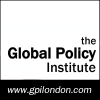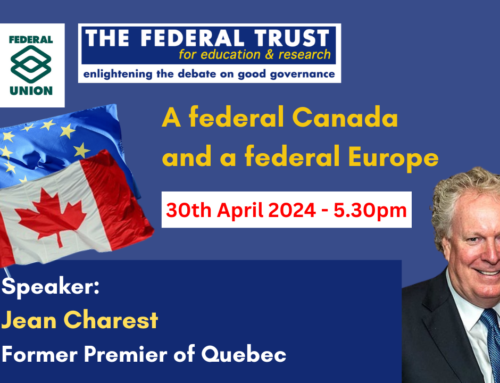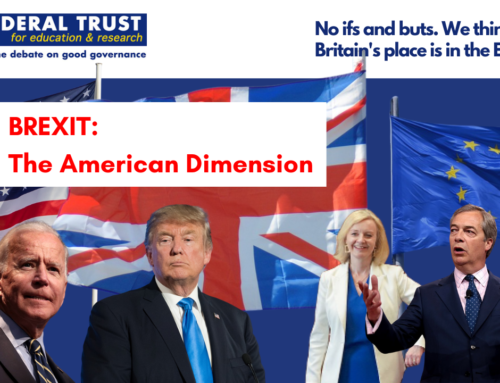GPI’s Overview statement of mid-2019 noted the trends of de-globalisation, the failings of neoliberalism to underpin an equitable global order, and the build-up of pressure in relation to the climate emergency and resource depletion. These trends confirmed GPI’s original analysis of a world dividing up into regional blocs as rising new powers in Asia favoured a multipolar world and more effective multilateral institutions. President Trump’s America First policy has decisively undermined the Liberal International Order, as it previously existed under American leadership and Western unity.
In examining the specifics of 2019, we witness a series of failures: the inability of the August G7 Summit to address any of the critical issues facing the international system, the failure of the December United Nations Framework Convention on Climate Change to reach any meaningful agreement and, in the same month, the rendering of WTO Appellant Body inoperative on adjudication of new disputes following the USA’s refusal to appoint members. This is compounding the emerging crisis of the rule-based Liberal International Order (LIO).
The breakdown of the global order and its institutions brings with it the pursuit of self-interest at every level (regional, national, sectoral, corporate and community). A situation that has been significantly aggravated since 2016 by the actions and derelictions of the Trump regime. It has turned American policy away from multilateralism and global leadership towards protectionism, confrontation with the rising powers, notably China, and any country or group of countries, not deemed to be acting in American interests – including long-term allies – all under the banner of America First. There is now a real danger that the global system is reaching a point where it will be incapable of taking coordinated action on almost any major issue.
The Covid-19 pandemic clearly is a major issue, indeed a syndrome of issues that will severely test the ‘global order’. The speed at which it travelled around the world is a global ‘first’. Time-space compression characteristic of hyper-modernity explains the rapid transmission along the physical routes of value chains, air and rail travel, and global tourism and sporting events. The trauma of interconnected world has shaken the belief in an ever abundant modernity and it will have penetrated public consciousness that we now live an age of limits (Schroeder, 2013). Modernity will become less hyper, social distancing will scale up to a more resilient autonomy as countries and blocs perceive interdependence as a threat and not a benefit. This will build on the already existing turning inwards and plebiscitary authoritarianism in some countries and the general failure of ‘liberal imitation’ (Krastev and Holmes 2019).
Early indications from America and China suggest an intensification of their conflict (military build-up, cultural, geopolitical and economic). Medieval wars never let a plague go to waste, catapulting diseased bodies into besieged cities. Media warfare between China and America plant stories of deliberate infection. The World Health Office has been seriously hurt by accusations of being subservient to China and President Trump’s unhelpful threats on funding. Wherever there is risk and danger, blame will be attributed on predetermined lines. Mary Douglas established this in her classic essay ‘Risk and Blame’ (1992). Societies react differently to risks and act according to where they stand in what Douglas called a grid of solidarity and rules. China is solidaristic and closely regulated, hence it is prone to the pathology of secretiveness but capable in public health measures. America is individualised and favours competition and conflict over solidarity. In the face of a pandemic, the tendency to libertarianism becomes a social pathology. President Trump has acted predictably to form, and his manifest ignorance of basic science and biology will further devalue American leadership and know-how in the eyes of the world.
It is therefore doubtful whether the sort of G20 agreement over monetary and fiscal action achieved in the wake of the GFC can now be repeated. Covid-19 does not stand alone but has lethal forerunners in SARS 2003, H1N1 influenza pandemic 2009, Ebola virus disease preparedness 2014, Middle East respiratory syndrome coronavirus (MERS-COV) 2015, and Zika virus disease 2016. These are exacerbated by climate change and herald the Era of Pandemics. Long-term adjustments in human activity will be required. Even in the best of times with the necessary international cooperation these challenges would have tested the LIO and, indeed, any conceivable global order.
Against this prognosis, even a weakened LIO should not be written off. It can be reformed and revitalised and this is still the most feasible option, especially if leaders and governments were to change. The new powers, not least China, continue to benefit from the present rule-based system and currently have no interest in its demise, even though recognition of their standing in the world has yet to be recognised. Secondly, international orders, even under very great stress have considerable inertia (Germain 2009: 284-285). Key institutions and their principal agent, the USA, are still deeply embedded in the LIO, with new players rapidly socialised into existing power structures and forms of interaction (Johnston 2008). This gives the LIO what Susan Strange (1987) termed ‘structural power’ and ‘durable infrastructure.’ This resilience is capable of adaptation and may not be wholly reliant on the continuing power of the USA – a point made more recently by Ikenberry (2018). Though, it is important to remember that the decline of the USA has been a recurrent theme since the mid-1960s and any review of the accuracy of past extrapolations of the direction of travel of the global system should make us cautious of writing-off the LIO or the American role within it.
Global order, or disorder, is emergent, something not yet observable or subject to extrapolation. Global interconnectedness, bearers of cooperation as much as prejudice and conflict, creates complexity out of which new patterns will emerge. However, we can pick up a line from Martin Albrow with which the last Overview concluded: ‘We have become our own environment, humankind has become global.’ One feature of this insight is that the Covid-19 virus has become part of humankind and represents a stage in the biosphere’s increasing interconnectedness and entropy. This represents a new consciousness of a lethal danger and much will depend on how the vital issues of vaccines and testing are handled. The advantages of global cooperation will become manifest, or, alternatively, biopolitics becomes a matter of national advantage.
References
Douglas, M. (1992) Risk and Blame. Essays in Cultural Theory. London and New York: Routledge.
Germain, R. (2009) ‘Financial order and world politics: Crisis, change and continuity’, International Affairs, 85: 669-687.
Ikenberry, G. J. (2018) ‘Why the Liberal World Order will survive’, Ethics and International Affairs, 32: 17-29.
Johnston, A. (2008) Social states: China in international institutions, 1980-2000, Princeton University Press, NJ.
Krastev, I and Holmes, S. (2019) The light that failed, Allen Lane.
O’Neill, J. (2019) ‘Intellectual breakdown has led to political turmoil’, Chatham House, Expert Comment, 3 October, https://www.chathamhouse.org/expert/comment/intellectual-breakdown-has-led-political-turmoil?
Shambaugh, D. (2018) ‘The new American bipartisan consensus on China policy’, China-USA Focus, 21 September, https://www.chinausfocus.com/foreign-policy/the-new-american-bipartisan-consensus-on-china-policy
Schroeder, R. (2013) An Age of Limits. London: Palgrave Macmillan.
Strange S. (1987) ‘The persistent myth of the lost hegemony’, International Organization, 41: 551-574.
Stiglitz, J. (2019) ‘The end of neoliberalism and the rebirth of history’, Project Syndicate, 4 November, https://www.project-syndicate.org/commentary/end-of-neoliberalism-unfettered-markets-fail-by-joseph-e-stiglitz-2019-11
US-China Institute (2020)’ China as a campaign issue’, 20 February, retrieved on 21 February 2020 from, https://china.usc.edu/site-search/China%20as%20an%20election%20issue
Wolf, M. (2019) ‘Why rigged capitalism is damaging liberal democracy’, Financial Times, 18 September.







